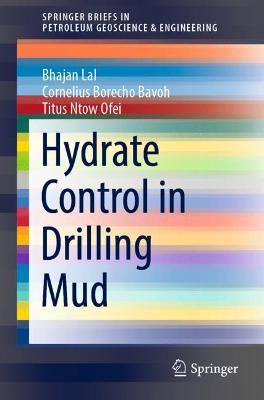SpringerBriefs in Petroleum Geoscience & Engineering
2 total works
Ionic Liquids in Flow Assurance
by Bhajan Lal, Ali Qasim, and Azmi Mohammad Shariff
Gas hydrate occurrence can pose a major threat to pipeline integrity. Therefore, different categories of gas hydrate inhibitors and the main factors influencing ionic liquids during gas hydrate inhibition are examined thoroughly. The use of ionic liquids as corrosion inhibitors, their application in flow assurance industry to mitigate corrosion, and factors affecting their performance are discussed. Finally, the applications of ionic liquids in wax, scale and asphaltenes deposition control is explored.
The extensive discussion of ionic liquids in flow assurance mean that this book will be of use to researchers, engineers, and industry professionals in upstream processing of the oil and gas sector.
Hydrate Control in Drilling Mud
by Bhajan Lal, Cornelius Borecho Bavoh, and Titus Ntow Ofei
This book provides pathways and strategies for mud engineers and drilling students in the future drilling industry. The data on the effect of drilling mud additives on hydrate formation thermodynamics and kinetics are discussed to aid proper additives selection and blending for optimum performance. Practical field operations of hydrate-related drilling are discussed with insights on future drilling operations.
Preface Drilling fluid design is very crucial in all drilling operations. Gas hydrate wells or hydrate sediments are future reservoirs that are believed to produced clean natural gas that will replace the current fossil fuels. Hydrate management has now become a part of the drilling operation and for that matter, relevant knowledge and guidelines of drilling fluid design for hydrate management in drilling-related operations would help establish a strong foundation for hydrate-related drilling operations.
This book is useful to mud engineers, students, and industries who wish to be drilling fluid authorities in the21st-century energy production industry.

